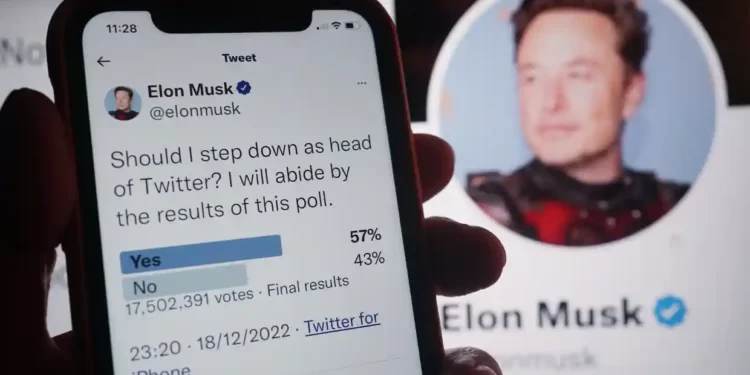Twitter’s new owner Elon Musk has announced he will step down as the company’s CEO once he has identified a replacement, finally breaking his silence on the poll he launched on his account to ask people whether he should resign as head of Twitter.
The poll, which was launched on Monday, recorded more than 17.5 million votes. Over 57 per cent of people supported Musk’s ouster, which made up more than 10 million votes.
“I will resign CEO as soon as I find someone foolish enough to take the job!” Musk tweeted to the poll. “After that, I will just run the software and servers team.”
I will resign as CEO as soon as I find someone foolish enough to take the job! After that, I will just run the software & servers teams.
— Elon Musk (@elonmusk) December 21, 2022
Musk had been curiously silent about the outcomes of the poll, given his swift follow-ups on similar activities the billionaire often organises on his account of more than 122 million followers. Musk’s decision to consult Twitter users came in the wake of mounting criticism directed at his suspension of prominent journalists on the platform. Last week, Twitter abruptly suspended Drew Harwell of The Washington Post, New York Times’ Ryan Mac, and CNN’s Donie O’Sullivan following an incident that allegedly involved a “crazy stalker” intercepting the car carrying Musk’s son.
The journalists were suspended for what Musk said were breaches of Twitter’s new location sharing policy, which prohibits a user from sharing someone else’s real-time location. Prior to multiple suspensions, Musk had also banned the account (@ElonJet) that tracked his flights using the publicly available data, equating it with doxxing (publication of identifying documents online with malicious purposes). The account’s holder, who is a 20-year-old programming student in California, claimed in interviews with leading news publications that Twitter had banned all of his other accounts, including his personal handle. The suspended journalists’ accounts were later reinstated after a majority of followers voted in favour of their restoration.
In the middle of the controversy, Twitter announced a new policy about location sharing, which many called a convenient move to justify Musk’s abrupt and irrational decisions. Then came another bizarre policy banning the links to other social media platforms, including Facebook, Instagram, and Twitter’s growing rival, Mastodon. The measure was to curb “free promotion” of other social networks. After significant criticism, however, Twitter silently rolled back the policy. Musk, on the other hand, maintained: “Twitter should be easy to use, but no more relentless free advertising of competitors. No traditional publisher allows this and neither will Twitter.”
Musk’s management at Twitter has been chaotic, marked by erratic, inconsistent and abrupt decisions, many of which have been roundly condemned by critics and rights activists as irrational and egotistical. So far, none of the components of his vision for Twitter 2.0 have delivered the desired or expected outcomes, especially the monetisation of blue check marks.
Musk completed his $44 billion acquisition of Twitter in October, weeks before he was to face executives in court over his unceremonious walkout from the proposed deal.




